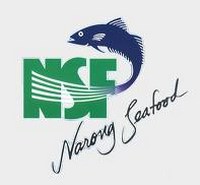Narong Seafood stung by suit
- Published: 23/10/2012 at 02:47 AM
Thai exporters are being warned of possible
penalties from using illegal software after Massachusetts fined a
family-owned Thai seafood company over unfair trade practices.
 Wiramrudee: Firms must obey US laws
Wiramrudee: Firms must obey US lawsThe laws seek to punish foreign companies that enjoy an unfair cost advantage over American businesses because they use unlicensed software, with the harshest penalties including fines and a ban from exporting to the US market.
Massachusetts, Louisiana and Washington already have UCAs specifically directed at piracy. Some European countries are considering similar laws.
Thai lawyers are urging Thai exporters to ensure their software is legal. Even if the software the companies use has nothing to do with the products or services they sell, they could still be investigated and charged.
The 30-year-old Narong Seafood Company Ltd is one of the first "victims" of the new regulation. "There are several other cases pending against Thai firms for violating the UCA," said Ms Wiramrudee.
Earlier this year the US state of Massachusetts alleged Narong was unfairly selling and delivering products into the state by illegally using pirated software without paying the appropriate licensing fees. Microsoft reported Narong's illegal use of its copyrighted software to the Massachusetts Attorney General's office after wrapping up its own suit against the Thai firm.
Arthon Piboonthanapatana, assistant managing director of Narong Seafood, said the company last week agreed to pay $10,000 to resolve the allegations. Under the terms of the agreement with the state of Massachusetts, Narong Seafood also agreed to no longer use unlicensed software programmes in connection with the manufacturing or production of goods entering Massachusetts.
"We agreed that the company might have overlooked some software licensing, but we completed a thorough software auditing process to ensure compliance with both Thai and international intellectual property laws," he said. "Since Massachusetts first contacted us, we immediately took steps to ensure licensing compliance and prevent the possibility of interruption to our business."

Narong Seafood has two modern factories in Samut Sakhon and Hat Yai, processing shrimp, fish, squid and cuttlefish. Major markets include the US, Japan, Europe, Australia and New Zealand.

ไม่มีความคิดเห็น:
แสดงความคิดเห็น